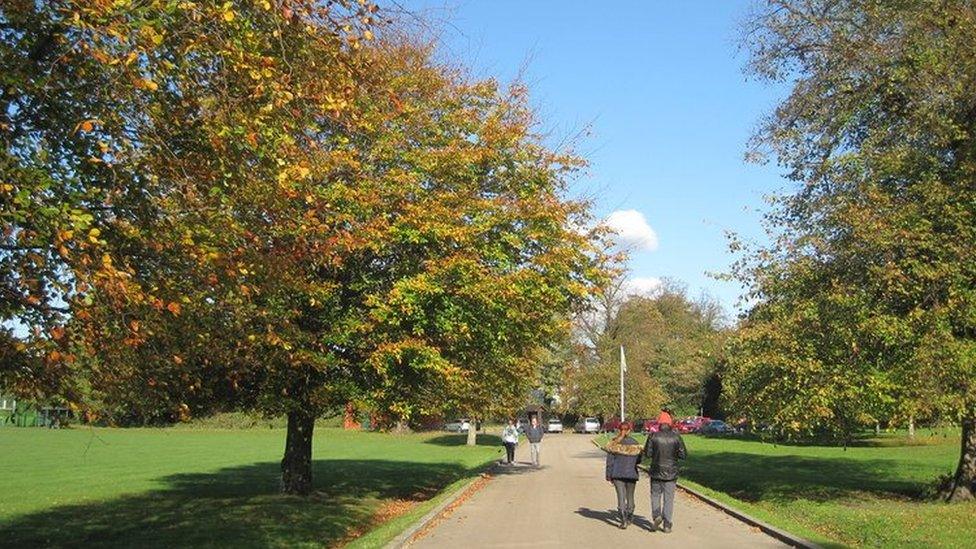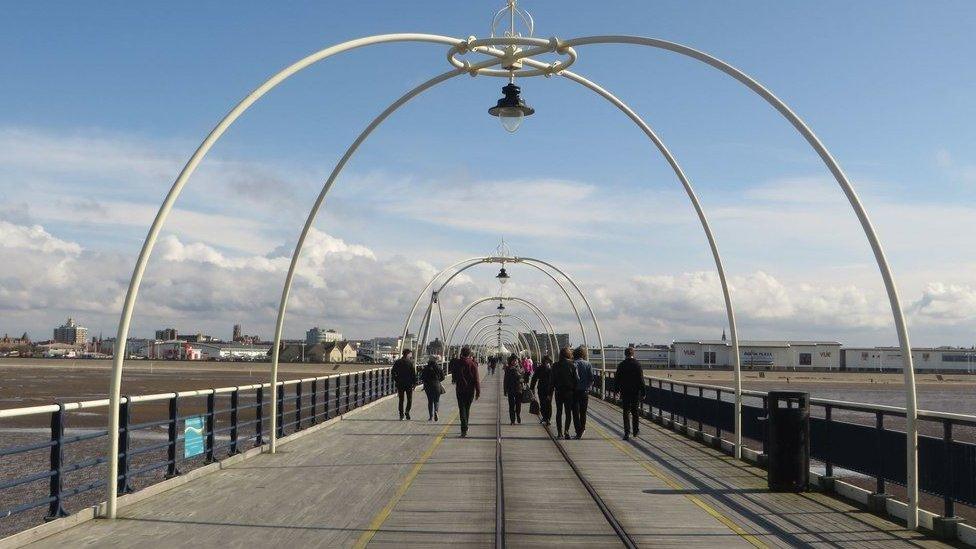Local elections 2021: Green space promises key to Merseyside polls
- Published

The development and protection of green spaces is an issue across Merseyside
It may seem startling, but Labour has already won 20% of the seats on Halton Borough Council without a single vote being cast.
All 54 seats on the authority, which is in geographically in Cheshire, but also - somewhat confusingly - sits in the Liverpool City Region, are up for election on 6 May after boundary changes that cut the number of councillors in the borough.
And Labour has already secured 11 of those seats due to a lack of opposition.
Although none of the 18 wards are completely uncontested, there are three where Labour has only two opponents and four where there is only one opposition candidate.
With each ward returning three councillors, this means Labour is already guaranteed to win a fifth of the seats.
Not that the party have it all their own way across Merseyside.
Wirral is expecting to see the closest contests, which could determine whether the minority Labour administration tightens its grip on power or sees it ebb away.
It truly hangs in the balance in the area - and it is the Green Party which is challenging Labour in two key seats, Birkenhead and Tranmere, and Prenton.
There has been a change of leadership of Wirral's Labour group and a move away from some of the more controversial development proposals and budget cuts.

Green space development is a huge issue for all six Labour-run councils in the Liverpool City Region, and it is in places where developments are planned that opposition parties really see opportunities.
Councils all have to prove, through a local plan, that they can meet housing demands in the coming decades, but inevitably any loss of green space provokes local campaigns.
In St Helens, a Labour stronghold, the biggest political rows of recent years have been over the local plan and development of green spaces.
The ruling Labour group there, as in Wirral, is hoping to win support with ambitious regeneration plans for town centres.
Knowsley was once referred to as Merseyside's "one party state" as for several years Labour was the only party represented.
Again, green space development and the - subsequently shelved - plan to sell off parks in 2018 has boosted support for the Greens and the Liberal Democrats, who are standing more candidates in these elections than they have in the last decade.
The ruling Labour group is hoping its record on protecting vulnerable during the pandemic will be recognised by voters, alongside its calls for easier to access self-isolation payments.

Southport is home of the city region's only Conservative MP
In Liverpool, the report into aspects of the council's operations which will see commissioners oversee four departments has provided most of the opposition party's election material.
Liverpool City Council is Labour-dominated - the Liberal Democrats, who once ran the city, are reduced in number to 10 while Labour has about 70 councillors.
In Liverpool, green space protection has been contentious over the last decade. The council has now vowed to hold the city's parks in trust, a move welcomed by campaigners, but it comes after battles over proposed housing developments in the south of the city, including one which resulted in the council being taken to court by local people.
In Sefton, the political landscape is very much a north-south divide.
Southport, home of the city region's only Conservative MP, traditionally returns Tory and Lib Dem councillors, while Bootle is where Labour enjoys one of its biggest majorities in Westminster, which unsurprisingly is reflected in local election results too.
The ruling Labour groups on all six councils say they have been subject to deep cuts in central government funding but have protected services and the vulnerable.
What that message means to the region's electorate will be seen in the results.

ENGLAND'S ELECTIONS: THE BASICS
What's happening? On 6 May, people across England will vote for new councillors, mayors and police and crime commissioners.
Why does it matter? When parties win control of a council, they decide policies for your area which could affect services ranging from social care to rubbish collection. Find out more about what councils do.
Who can vote? Anyone who lives in England, is registered to vote and aged 18 or over on 6 May is eligible. Find your local election here.

Why not follow BBC North West on Facebook, external, Twitter, external and Instagram, external? You can also send story ideas to northwest.newsonline@bbc.co.uk, external
